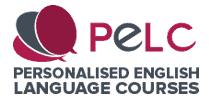Achieving the ideal IELTS speaking test preparation routine – With Veena Krishnamurthy (IELTS Master Trainer)
Following on from the success of recent posts connected with the TOEFL Speaking test, the Cambridge B2 First Speaking test and C2 Proficiency, I’ve now shifted my attention to IELTS Speaking test preparation.
To do the topic of preparing for the IELTS Speaking test justice, I interviewed IELTS Master Trainer, Ms Veena Krishnamurthy.
Before I get down to the topic of how to prepare for the IELTS speaking test, here’s an overview of Ms Krishnamurthy’s credentials.
All about Veena Krishnamurthy
Veena Krishnamurthy is someone who has a passion for languages and an enviable CV.
Highly fluent in both English and French, Veena taught both languages in the early part of her career. She has worked for various institutions right across India. These institutions include the Alliance Française of Hyderabad, the Alliance Française of Chennai and M.C.T.M. Chidambaram Chettyar International School, where she taught IB French and IGCSE English.
It was in about 2010 that Veena turned her attention to freelancing, whilst still teaching in schools in the Chennai area. She set up Synchrolearn which offers tailor made online classes, teacher training webinars for professional development in translation and interpretation services, and exam preparation courses.
Veena completed the CELTA back in 2012 at the British Council. Between 2013 and July 2022, she delivered corporate training in General and Business English at the British Council Chennai. Veena also taught courses in companies as diverse as SCOPE, Caterpillar, Sundram Fasteners and Sanmina, to name a few. She has also developed content and conducted workshops for the British Council.
Veena has been heavily connected with the IELTS exam since 2012, most notably as an IELTS Masterclass Trainer. Currently, she is an IELTS Master Trainer (a certified Trainer of IELTS trainers) with Cambridge University Press & Assessment. Veena also holds a position with BC Education India Private Limited where she is a freelance trainer for a variety of courses including general and business English, IELTS and APTIS.
Interview with Veena Krishnamurthy
I approached Veena Krishnamurthy to get her thoughts as to how candidates for the IELTS exam could go about implementing a productive IELTS speaking test preparation routine as independent learners.
Let’s dive in.
1. There are four parts to the IELTS Speaking marking criteria - Pronunciation, Lexical Resource, Grammatical Range and Accuracy and Fluency and Coherence. In your experience, which of these areas do candidates tend to neglect when preparing for their IELTS speaking test?
"I would say that many students do work a lot on their fluency, as well as grammar and vocabulary. However, they’re not very aware of what pronunciation entails. Many non-native speakers think that pronunciation is tied to accent. They tend to neglect areas such as word stress, sentence stress and intonation.
There is a large gap between expressing something in words and then expressing something visually - with their body language - and through intonation and so on.
So, many IELTS candidates misjudge the pronunciation side of the marking criteria. They shouldn’t focus on trying to get an American, Australian or British accent. Instead, they should work on being understood by the listener by improving some of the parameters I just mentioned, such as intonation and word stress."
2. Do candidates often misunderstand the Lexical Resource assessment criterion? For instance, perhaps many candidates get carried away with learning too much ‘high level’ lexis and obscure idioms.
“Absolutely. Many candidates, I feel, have a habit of watching all these videos that are available on Youtube. They may also overrely on resources that have been created by non-teachers - business people. So, candidates waste a great deal of time focusing their efforts on words and expressions which are prosaic or even obsolete in spoken English. Candidates’ lexical choices may also be highly inappropriate for the context.
One problem that candidates have then is using the right kind of vocabulary. Topic-wise, candidates haven’t studied and acquired the right kind of words that have to be used. The second issue is - candidates haven’t considered collocations. When students look up a word in a dictionary, they very often just check the word's definition. Therefore, they don’t look at how the word is used in context.
As part of their IELTS Speaking test preparation routines, it’s vital that candidates consider skills such as paraphrasing, using synonyms and alternative word forms.”
3. Which language learning strategy, or strategies, would you recommend students to use in order to remember all those collocations?
“Right from the get-go, I ask my students to write down any new words they come across in a notebook.
I also ask students to not limit themselves to looking up words in one dictionary. Instead, I ask them to consider different dictionaries, especially a bilingual dictionary, to understand what a word means. I also ask them to scan through the various meanings of a word that a dictionary lists. Candidates shouldn’t rely on the first meaning that pops up. It’s vital to see how a word behaves in different contexts.
Apart from recording words in a notebook, it’s also important to write down example sentences which contain the target word. These sentences can be found in dictionaries as well as in activities they can do online. There are so many PDFs available, such as those on OnestopEnglish and the LearnEnglish British Council website.”
4. To what extent should memorisation be a key feature of a candidate’s preparation for the speaking test, be it memorising opening sentences to buy time or even memorising whole answers?
“In the IELTS speaking test, what the examiners are looking for is a spontaneous response. IELTS examiners are well-trained and they can see through a memorised answer immediately. For instance, when a candidate uses certain structures over and over again, it’s highly likely that they’ve memorised answers.
When it comes to a candidate’s self-directed IELTS Speaking test preparation, they’d be better off working on some of the language learning strategies I’ve already mentioned, rather than memorising whole answers. Chunks of language should be memorised. Responses to potential questions should not.”
5. I firmly believe in the power of voice recording in language learning. Language learners should not be afraid to listen to themselves and reflect on their mistakes and what they may be doing well of course. What’s your view on candidates recording themselves answering IELTS practice questions?
“Voice recording is only slowly taking off in India. When I recommended students to listen to their own recordings, they couldn’t do it. They couldn’t listen to their own voices and all the mistakes that they made.
However, I have incorporated voice recording as an activity in class whereby students listened to each other’s recordings and gave peer feedback. It all started with that. After some time, many students began to develop the habit of listening to themselves.
I give students certain parameters to listen out for. Many of them have this problem of pausing too much. If that's the case, I tell them to listen for that and then work on it in the next recording. So, focusing on only one criteria makes it easier for students to work on that particular aspect.
Instead of asking my students to speak for two minutes, I might get them to speak for around 30 seconds. In this way, they become more comfortable with recording themselves and critically assessing their own performance.”
6. How difficult is it for candidates preparing for their IELTS speaking test to get used to speaking at length and balancing the time available for each question?
“Every candidate’s IELTS speaking test preparation routine should include timing themselves - but only when they’re ready for it.
Practising spontaneous speech is important. When you think about it, university professors generally don’t give students more than 10 to 15 seconds to answer a question.
So, responding immediately and at length are abilities which IELTS candidates have to work on. When it comes to part 2, tutors should make students aware of why it’s important to finish speaking within a certain time - namely a minute or two. Moreover, tutors should point out why candidates are only given one minute to prepare their talk.
In part three, students must demonstrate a variety of language functions* and use signposting language**. As the questions are complex, candidates need a couple of seconds to reflect. However, pausing might bring their scores down. Instead, using appropriate phrases to buy time before they respond is a good tactic.*** Once students understand all of this, they’re generally willing to face these challenges related to time management, and put in the effort to give the kind of responses that trainers and examiners are looking for.”
* What are examples of language functions?
Language functions which intermediate level learners should be using include showing preferences, expressing opinions and comparing and contrasting people, places and things.
More advanced students should be looking to persuade others, speculate, hypothesise and sequence a speech.
** What is signposting language?
Signposting language refers to the words and expressions that speakers use in order to guide the listener coherently through what is being said.
Signpost expressions make it clear what has just happened, and which arguments and utterances will follow.
So, in other words, signposting language acts as a guide to help the listener follow a speaker’s train of thoughts.
*** What does it mean to “buy time” in a speaking test?
When candidates aren’t immediately sure how to answer a question in part 3 of the IELTS speaking test, they can use a long expression such as “That’s an extremely interesting question to answer”. In this way, candidates can buy a bit of time to think about what they want to say.
7. What kind of grammatical structures should candidates practise before their speaking test?
“For a candidate who’s just beginning to prepare, it’s a good idea to start with simple grammar structures and then move on to more complex structures.
I recommend candidates to look at complex structures like conditionals and gerunds. They should also focus on different types of discourse markers to begin utterances with.
Of course, students should practise these complex structures. However, what often happens is they practise so hard that their answers almost solely contain complex sentences. The net result is that their speech sounds very mechanical, contrived and artificial.
All in all, candidates need to find that all important balance. Speech has to be spontaneous. However, they do need to use a variety of structures and tenses. During the 11-14 minutes of their speaking test, candidates have to show that they have a handle on the English grammar system as a whole. If they repeat the same structure again and again in every response, they will get marked down. It’s important to experiment and try to use a different structure.”
8. I recently spoke with John Healy, founder of the TOEFL Speaking platform, My Speaking Score. My Speaking Score uses the ETS SpeechRater scoring engine to provide test takers with instant data-heavy feedback. When it comes to IELTS speaking test preparation, to what extent could candidates benefit from a similar kind of speech assessor that uses advanced artificial intelligence algorithms to analyse their spoken language and provide feedback?
“The system that SpeechRater follows is a very good one. Human raters assess the content development and delivery, or intelligibility, side of things. On the other hand, AI assesses aspects related to grammar and vocabulary.
When it comes to independent IELTS Speaking test preparation, of course students should practise with software which enables them to record themselves. If this software provides data-driven feedback pertaining to issues candidates may have with hesitations, word stress and excessive pausing, to name but a few areas, then all the better for them.
Not every candidate has access to a teacher who can provide them feedback. Therefore, it’s a prudent move on a candidate’s part to make use of such software from the comfort of their own homes.”
9. Do IELTS speaking candidates almost feel embarrassed to state the obvious regarding when they answer an examiner’s questions or have to describe what’s in a picture?
“It’s important for every candidate to know that they’re being assessed on their English proficiency and not their knowledge. So, it might feel a little silly for them to state the obvious - but it doesn’t matter.
Having said that, after the first few seconds when they are easing themselves into the question and stating, for example, what’s clearly shown in a picture, they need to go a little deeper. This means they need to speculate and use other language functions, such as describing something in detail, taking a stand, justifying or simply summarising.
To reiterate - students should know that their English language skills are being tested. The Examiner’s personal views or opinions do not matter. Therefore, there’s no need to feel ashamed or intimidated by the examiner.”
10. Overall, what are your best tips for candidates who have to prepare for the IELTS speaking test?
“First and foremost, a candidate’s IELTS speaking test preparation plan needs to be geared towards speaking spontaneously whenever they get the chance. Voice recording and practising with an IELTS tutor can help. The overall goal is to build confidence levels.
Secondly, a lot of us have been raised in contexts where we aren't used to giving extended responses. For example, if a friend were to ask me something, I might just say “yes”. However, this is an exam and it’s vital for students to understand why extending their responses is important.
Another thing is that candidates need to focus on accurate language and also use a variety of structures.
Coming to part 2. Students who are perhaps too confident often neglect the one-minute preparation time they have. However, every single candidate needs to make full use of this minute in order to cover all the bullet points on the cue card. Moreover, using the preparation time wisely will help them to speak using the right kind of discourse markers and linking words to logically arrange ideas.
Students preparing for part 2 also need to focus on brainstorming and numbering their ideas. In the first minute, they should cover all of the bullet points that are provided. They should leave the point they have a great deal to speak about until last, i.e. after one minute has passed. Even if the examiner stops them, they’ll still have covered everything they need to.
As for part 3, the questions are complex. Therefore, candidates should focus on keywords and listen to all parts of the question to ensure they understand. Keywords are content words that help candidates to understand the question quickly. Sometimes examiners may ask a question such as ‘What is more important at work, job satisfaction or the salary?’ Candidates should state their opinion and also compare both these points in their response while justifying their stand.
Also, in part 3, candidates need to think of perspectives. For example, if they have to talk about whether the Internet should be banned in a certain country, they need to think broadly. What impact would such a ban have on shoppers, teenagers, entrepreneurs and even senior citizens? Is such a radical move viable across the entire society? Why and why not? Doing this will give candidates plenty of ideas. Half the time, they don’t have ideas which is why they need to think about perspectives and adopt a more global view of an issue.”
Recommended resources to prepare for your IELTS Speaking Test
Veena recommends you to add the following sites to your IELTS Speaking test preparation study schedule:
1. LearnEnglish British Council (linked to earlier in the interview)
This website is ideal for grammar and vocabulary. It comes with explanations and tasks.
2. Quiz42
Quiz42 (quiz-for-two) is a gripping and enjoyable way to improve your English by playing against other learners and speakers all over the world.
You can do Grammar and vocabulary quizzes on the go.
3. Speaker English
A great platform to practise your speaking skills and prepare for your IELTS Speaking test. Create a daily prep plan. Try out the tests, get your responses recorded and receive feedback from experts!
4. BBC Sounds
Make use of podcasts to hone your pronunciation and intonation skills.



